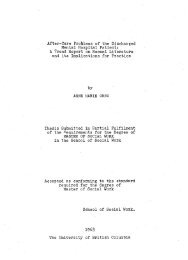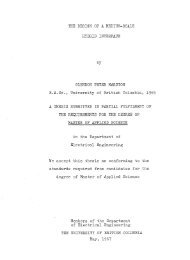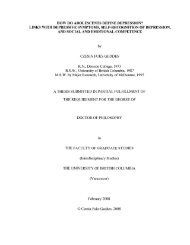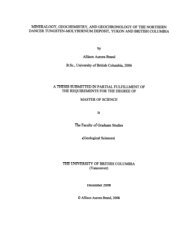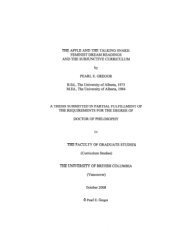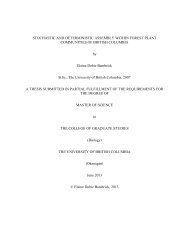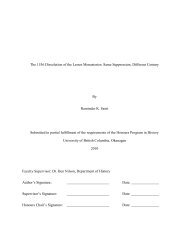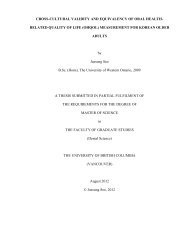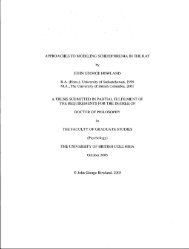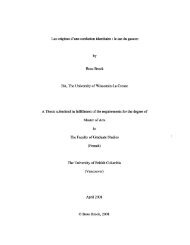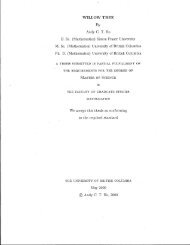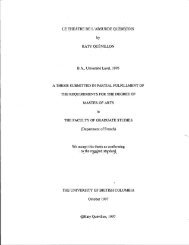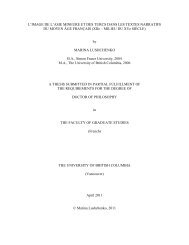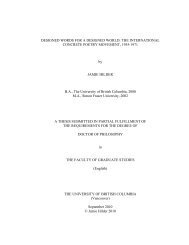A STUDY OF THE THEORY OF APPRAISAL FOR SELECTION By ...
A STUDY OF THE THEORY OF APPRAISAL FOR SELECTION By ...
A STUDY OF THE THEORY OF APPRAISAL FOR SELECTION By ...
You also want an ePaper? Increase the reach of your titles
YUMPU automatically turns print PDFs into web optimized ePapers that Google loves.
provide archivists with the necessary tools to assess the<br />
conceptions by which they bring the past into the present."42<br />
Public opinion from a particular historical era expresses the<br />
dominant political culture of society, and provides a fixed point<br />
of reference from which value decisions can be made: "Such a<br />
constant can only be derived from socio-political values that<br />
were dominant at the time the documentary material was created<br />
and actively used."43<br />
Booms also advocated the formation of documentation plans to<br />
be developed by subject category or historical phenomenon, within<br />
specific time periods, as they relate to a particular<br />
repository's sphere of responsibility. An advisory council could<br />
analyze contemporary opinion, and develop an historical grid of<br />
significant events that occurred in the broader contemporary<br />
society of the records' creator. From this analysis, archivists<br />
could "distill in concrete form the significant points from the<br />
total political and social events which occurred within the<br />
specific archival jurisdiction."44 In this manner, the<br />
historical model could identify the essential events, actions,<br />
omissions, and developments that are characteristic of the time<br />
and subject under consideration.<br />
After the significant events were identified, archivists<br />
could then proceed to construct a scale of significance of the<br />
42 Ibid, 104.<br />
43 Ibid, 105.<br />
44 Ibid.<br />
50



